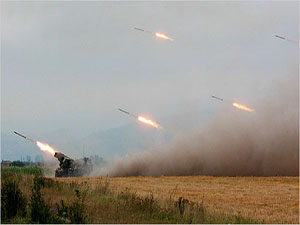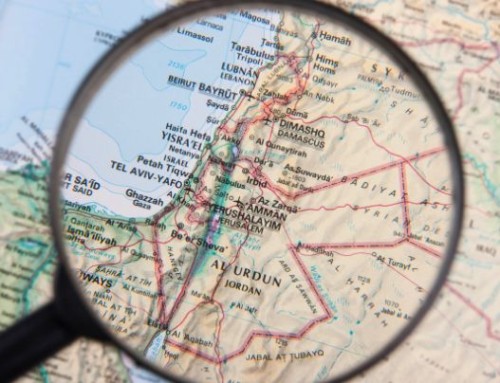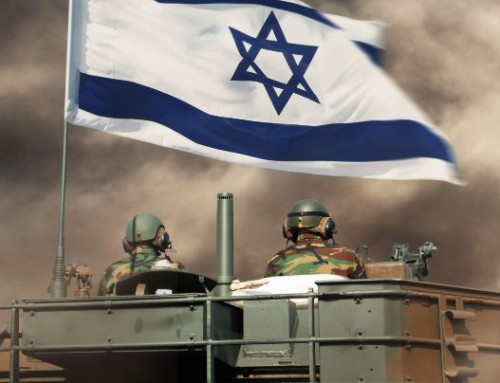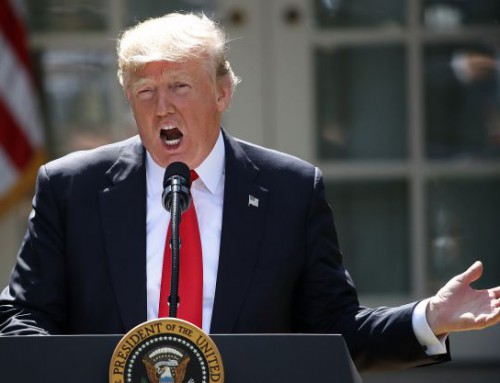 Arguably, August is in the finals as potentially the most dangerous month of the year. On August 4th a century ago, Britain went to war to honor an 1839 treaty immediately after the Kaiser’s army invaded that Belgium. Fifty years ago, on the same date in 1964 (following an attack by North Vietnamese torpedo boats on a U.S. Navy destroyer two days before), a second incident occurred in the Tonkin Gulf. Two Navy destroyers radioed that both were under torpedo attack. No such attack took place. But the incident was enough for the U.S. Congress to pass the Tonkin Gulf Resolution that began a decade of war in Vietnam, the first war America would lose.
Arguably, August is in the finals as potentially the most dangerous month of the year. On August 4th a century ago, Britain went to war to honor an 1839 treaty immediately after the Kaiser’s army invaded that Belgium. Fifty years ago, on the same date in 1964 (following an attack by North Vietnamese torpedo boats on a U.S. Navy destroyer two days before), a second incident occurred in the Tonkin Gulf. Two Navy destroyers radioed that both were under torpedo attack. No such attack took place. But the incident was enough for the U.S. Congress to pass the Tonkin Gulf Resolution that began a decade of war in Vietnam, the first war America would lose.
Two atomic bombs were dropped on Japan in August 1945 beginning the nuclear age. Forty years ago in August, Richard Nixon resigned the presidency. And in August 1990, a certain Saddam Hussein decided to invade Kuwait.
This August may prove as dangerous and transformational as those prior Augusts. One reason is America’s re-entry into what Winston Churchill described ninety-five years ago as the Iraqi volcano. President Barack Obama authorized both humanitarian air-drops along with air strikes against ISIS/L forces to prevent the slaughter or deaths by starvation and thirst of thousands of Yazidis trapped on a mountainside in northern Iraq. Few believe that a handful of air strikes will suffice or that a much longer-term commitment by the U.S. will not follow.
In Ukraine, President Obama does not rule out Russian forces intervening (and some would say invading) the eastern part of that country “to protect” the seccesionists from the Kiev government. If that occurred, President Vladimir Putin would probably select the timing to compromise, embarrass or overshadow the NATO summit in Wales in early September. And, stock markets are reacting to this bad news with greater volatility and uncertainty.
Meanwhile, ceasefires and truces between Israel and Hamas continue to be broken. While the current cycle of violence may wind down, solution to the Arab-Palestinian-Israel conflict remains as intractable as ever. Interestingly, in using force, both Putin and Israeli Prime Minister Benyamin Netanyahu are enjoying favorable public opinion ratings that Mr. Obama can only envy. Indeed, with the anniversary of Nixon’s resignation fresh, rumblings in the Republican controlled House of Representative over possible impeachment proceedings against Mr. Obama bring a note of absurdity to temper these more somber realities.
What a month! And it is less than half over. Where is this headed? First, and this is a news flash: Mr. Obama will not be impeached. That folly is perhaps the best news of the month although many Americans no doubt are reconsidering why they voted for the president in the first place.
Unfortunately, critics who decry the absence of strategy or a plan to deal with the multi-crises are correct. And the ill-advised and horribly executed roll out of the “strategic pivot” to Asia two years ago merely makes the White House look even more strategically deprived or even depraved.
While presidents are never “off duty” and deserve a holiday, the Obama family vacation to Martha’s Vineyard presents the wrong optics at a time that U.S. bombs are being dropped in Iraq. Recall George W. Bush’s failure to react decisively and immediately to Hurricane Katrina and the approbation that followed. Given the U.S. military strikes in Iraq, a similar mood could prevail again among the public.
What then must the U.S. do beyond its current actions already underway or in train? As last week’s column argued, partnerships are a key to success. Why is the U.S. creating the impression of unilateral action when allies are present and needed? The UK and France are carrying out humanitarian air-drops. Why should these efforts not be coordinated under the UN, Arab League or some other banner to provide some international legitimacy?
Second, other Arab neighbors of Iraq are profoundly opposed to ISIL regarding it as a material menace. Could they not work with the US to safeguard the Yazidis? While the Libyan campaign turned out to be a disaster, that does not discredit fielding a coalition of the willing.
Third, why has the administration been slow (or derelict) in not engaging the Sunni chiefs to battle ISIL? Obviously, Iraqi Prime Minister Nouri al Maliki is the major roadblock. But surely some outreach to the Sunni tribes must be forthcoming and soon.
August may or may not be the most dangerous month. But this August surely is not looking good in any regard. And, the really bad news is that conditions are almost certainly going to get worse before they improve.






Leave A Comment